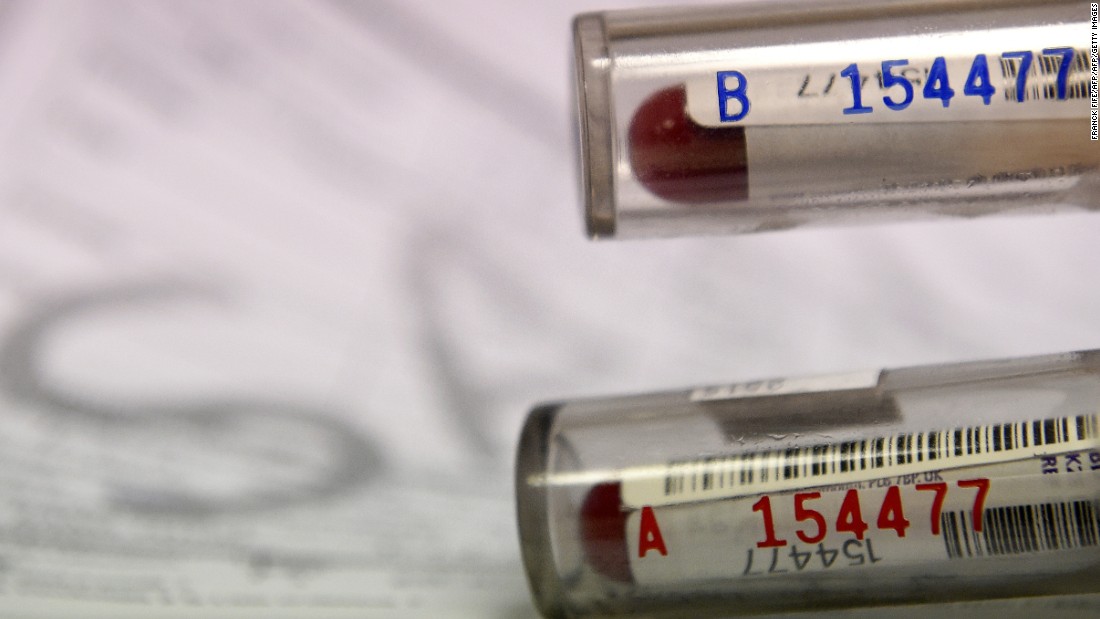
Bach, president of the International Olympic Committee (IOC), told CNN Money last week that "doping will always happen" and is "one of the wars you cannot win."
However, Tygart criticized Bach and the IOC for trying to put the Russian doping scandal "into its rear-view mirror" and for trying to bring "one of the most powerful and biggest countries in the Olympic movement back into the tent."
And he warned that the premature reinstatement of the Russian anti-doping agency (RUSADA) into sport's worldwide fight on drugs would be a "devastating blow" to the credibility of the World Anti-Doping Agency (WADA) as well as the "hopes and dreams" of clean athletes.
"It's obviously a tough fight but the leader of sport or anti-doping can't simply throw in the towel," Tygart told CNN's Don Riddell.
"Can you imagine if Michael Phelps or Usain Bolt walked into an Olympic final and said, 'I can't win this?'
"It's not the focus, it's not the determination, it's not the commitment that clean athletes expect and deserve.
"It's not time to quit, it's not time to give up, it's time to double down the efforts to ensure that the system changes to better protect their rights," added Tygart.
In a statement sent to CNN Sport, the IOC said that Bach was "acknowledging -- with regret -- reality."
"Cheating is unfortunately a part of human nature. To state that you can eliminate it 100% is not being realistic or very helpful in the fight," said an official IOC spokesperson.
"Just as crime will never be 100% eliminated so with cheating. It is a sad fact, but we must deal with reality rather than pointless rhetoric and continue our single minded fight against doping and our policy of zero tolerance."
'Stare down'
Russia was accused of state-sponsored doping up to and including the Sochi 2014 Winter Games, and Russian athletes were barred from the 2016 Rio Olympics.
Athletes who could prove they were clean were able to compete at PyeongChang 2018 under a neutral flag.
Despite two Russian competitors -- curler Alexander Krushelnitsky and bobsledder Nadezhda Sergeeva -- failing drugs test in South Korea, the suspension of the Russian Olympic Committee was lifted following the Games.
However, Russian athletes are still banned by the International Association of Athletics Federations (IAAF) and the International Paralympic Committee (IPC).
WADA's executive committee will meet in the Seychelles on September 20 to decide whether to reintegrate Russia into the system, but Tygart's body is concerned two key criteria for reinstatement have not been met.
These are an acceptance of the McLaren report, which outlined much of the systematic doping, and access to the Moscow laboratory.
"It's a stare down right now, quite frankly, between Russia and WADA," said Tygart.
"And I think, unfortunately, if WADA blinks and allows Russia to be reinstated despite not fulfilling the two remaining conditions of the road map for reinstatement, it'll be the U-turn of all U-turns."
Tygart believes it will be a "terrible, devastating day" for clean athletes should RUSADA be reinstated next month, and says at the moment the trust athletes have in the system is "on life support."
But he adds: "We're going to do everything possible to not let athletes throw in the towel and continue to have them believe in clean sport, even when the sport promoters let them down.
RUSADA did not immediately respond to CNN's request for comment, but WADA described Tygart's comments as "speculative, ill-informed and misleading."
"They do not reflect how WADA has operated in the past two years, how it operates today and the robust process that is in place regarding RUSADA's compliance," said WADA in a statement sent to CNN.
"In November 2015, RUSADA was declared to be non-compliant with the World Anti-Doping Code following confirmation by a WADA investigation of the existence of an institutionalized doping program in Russia.
"As it does in all cases of non-compliance, the WADA Team immediately set to work in order to remedy the situation and rebuild RUSADA so it can deliver a credible, independent and sustainable anti-doping system in Russia for the protection of clean athletes.
"The Roadmap to Compliance for RUSADA, which was agreed by all members of WADA's Executive Committee (ExCo) as well as the Russian authorities, is in place and WADA has not deviated from that since it was first published in August 2017.
"This agreement clearly outlines the criteria that RUSADA must fulfill before WADA's independent Compliance Review Committee would recommend to the ExCo that they be declared compliant.
"WADA has been working tirelessly to assist Russia at every stage of the process and, to date, significant progress has been achieved."
No comments:
Post a Comment